16 Ordinary Terms With Terrifying Origins
Mizuka Ishiwatari
Published
07/27/2015
You might be shocked to learn what the commonly used words and names used to mean in the olden days?
- List View
- Player View
- Grid View
Advertisement
-
1.
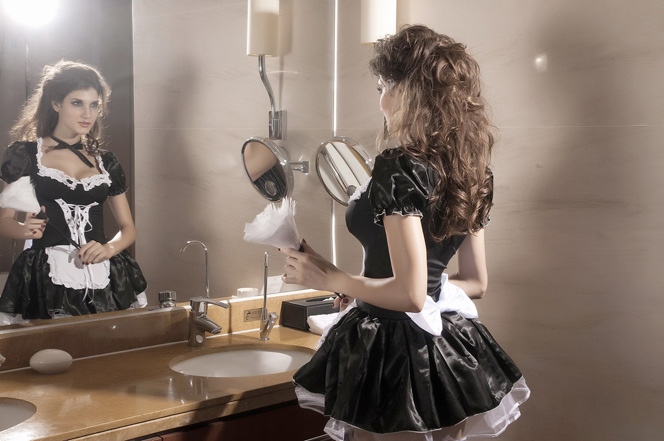 Villain - a villain used to be a servant working in a villa. Perhaps the people working in villas, serving the rich, tended to be exceptionally evil?
Villain - a villain used to be a servant working in a villa. Perhaps the people working in villas, serving the rich, tended to be exceptionally evil? -
2.
 Blue blood - it used to be a very racist term coined by the white Castillians in the 15th century. The name came from blue veins being visible on pale white skin.
Blue blood - it used to be a very racist term coined by the white Castillians in the 15th century. The name came from blue veins being visible on pale white skin. -
3.
 Handshake - it used to be a practice of shaking a person's hands to see if they carried any conceiled weapons in their sleeves. Later it became customary to shake each others' empty hands as a sign of no ill-will.
Handshake - it used to be a practice of shaking a person's hands to see if they carried any conceiled weapons in their sleeves. Later it became customary to shake each others' empty hands as a sign of no ill-will. -
4.
 Bridesmaid - in ancient Rome, the bridesmaids were women dressed up exactly like the bride to confuse evil spirits that would attack the bride during her wedding ceremony.
Bridesmaid - in ancient Rome, the bridesmaids were women dressed up exactly like the bride to confuse evil spirits that would attack the bride during her wedding ceremony. -
5.
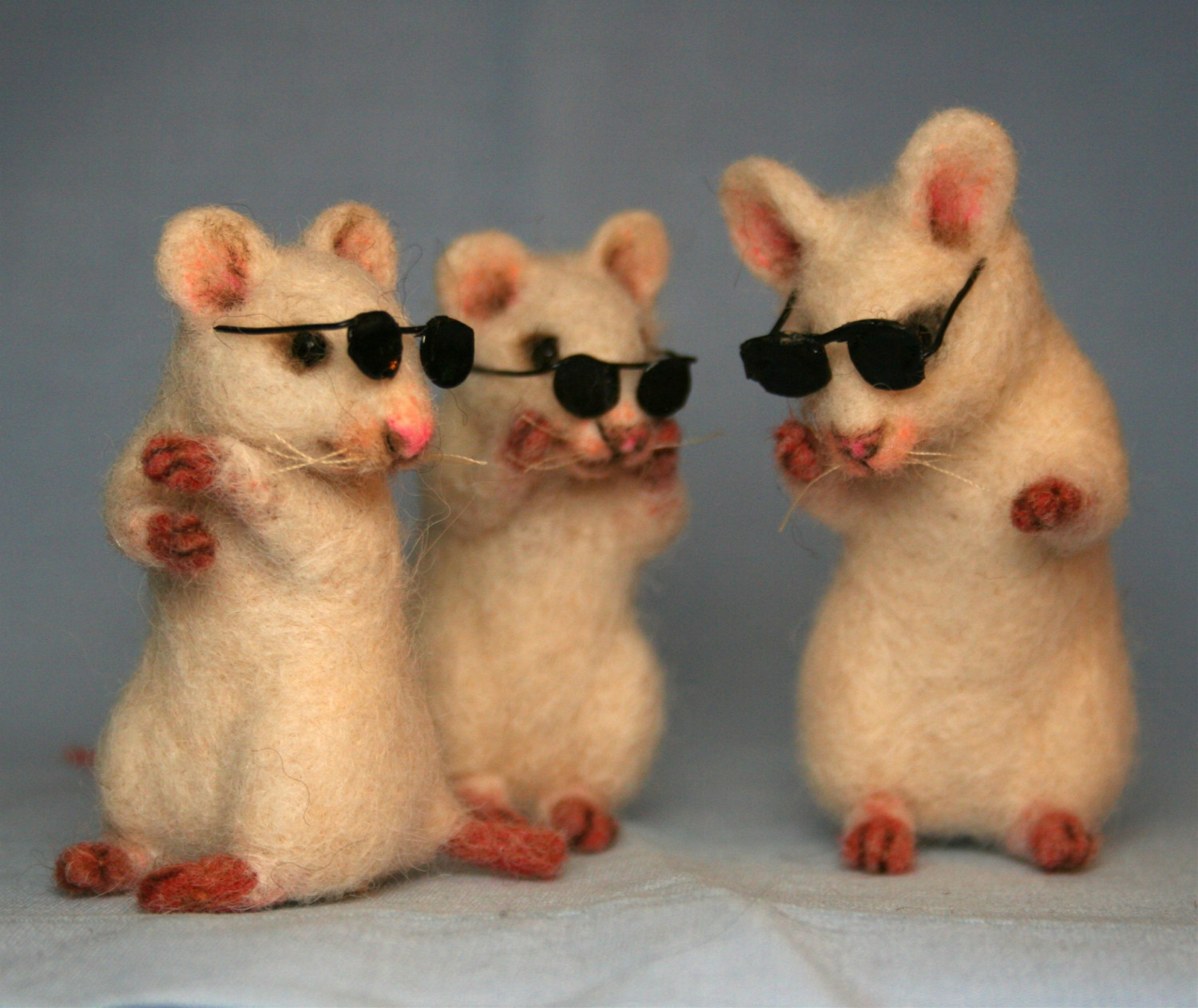 Three Blind Mice - the popular children's song refers to three men executed by Queen Mary I for plotting against her.
Three Blind Mice - the popular children's song refers to three men executed by Queen Mary I for plotting against her. -
6.
 Siren - the signal producing a warning sign gets its name from sociopathic creatures luring sailors to their death with their voice.
Siren - the signal producing a warning sign gets its name from sociopathic creatures luring sailors to their death with their voice. -
7.
 Fornication - in the times of the Roman Empire, fornication meant "to have sex in a bread oven. Why? Because it was a popular practice from Roman prostitutes to serve their clients in a warm arched furnace, when it wasn't used for baking.
Fornication - in the times of the Roman Empire, fornication meant "to have sex in a bread oven. Why? Because it was a popular practice from Roman prostitutes to serve their clients in a warm arched furnace, when it wasn't used for baking. -
8.
 Nice - this is actually a slang word much similar to "cool" or "tight" which also have very different meanings. Unlike 'cool' and 'tight,' 'nice' is no longer being used in it's previous meaning for quite a while. Oh, right, you ant to know what it used to mean? It used to describe a person so stupid and gullible, that they were basically a marionette in another person's hands.
Nice - this is actually a slang word much similar to "cool" or "tight" which also have very different meanings. Unlike 'cool' and 'tight,' 'nice' is no longer being used in it's previous meaning for quite a while. Oh, right, you ant to know what it used to mean? It used to describe a person so stupid and gullible, that they were basically a marionette in another person's hands. -
9.
 Deadline - it refers to a perimeter in Andersonville Prison, used to keep Union soldiers. The perimeter was located at the 12th foot of the 17 feet fence - a prisoner trying to escape would get shot if they reached the 12th foot of the fence.
Deadline - it refers to a perimeter in Andersonville Prison, used to keep Union soldiers. The perimeter was located at the 12th foot of the 17 feet fence - a prisoner trying to escape would get shot if they reached the 12th foot of the fence. -
10.
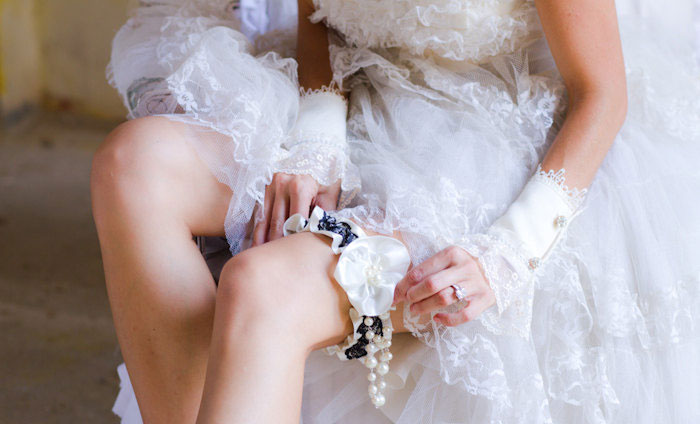 Tossing the bride's garter - in the 14th century it was customary to rip off the brides dress and watch the couple consumate their marriage. The guests would tear of the fabric piece by piece for luck. That's why it later became a popular practice to toss a part or the brides gown at the guests. Throwing a garter was a practical choice - the dress remained intact and the guests received a part of the bride's clothing.
Tossing the bride's garter - in the 14th century it was customary to rip off the brides dress and watch the couple consumate their marriage. The guests would tear of the fabric piece by piece for luck. That's why it later became a popular practice to toss a part or the brides gown at the guests. Throwing a garter was a practical choice - the dress remained intact and the guests received a part of the bride's clothing. -
11.
 Cheat - it used to mean gaining something with no effort of your own. For example, if you gained inheritance from your late aunt, it was also called cheating.
Cheat - it used to mean gaining something with no effort of your own. For example, if you gained inheritance from your late aunt, it was also called cheating. -
12.
 Covering a yawn - early cultures believed that a demon can enter a body through the mouth while a person was yawning, so it was a common practice to cover your face while doing so. It had nothing to do with proper manners, apparently.
Covering a yawn - early cultures believed that a demon can enter a body through the mouth while a person was yawning, so it was a common practice to cover your face while doing so. It had nothing to do with proper manners, apparently. -
13.
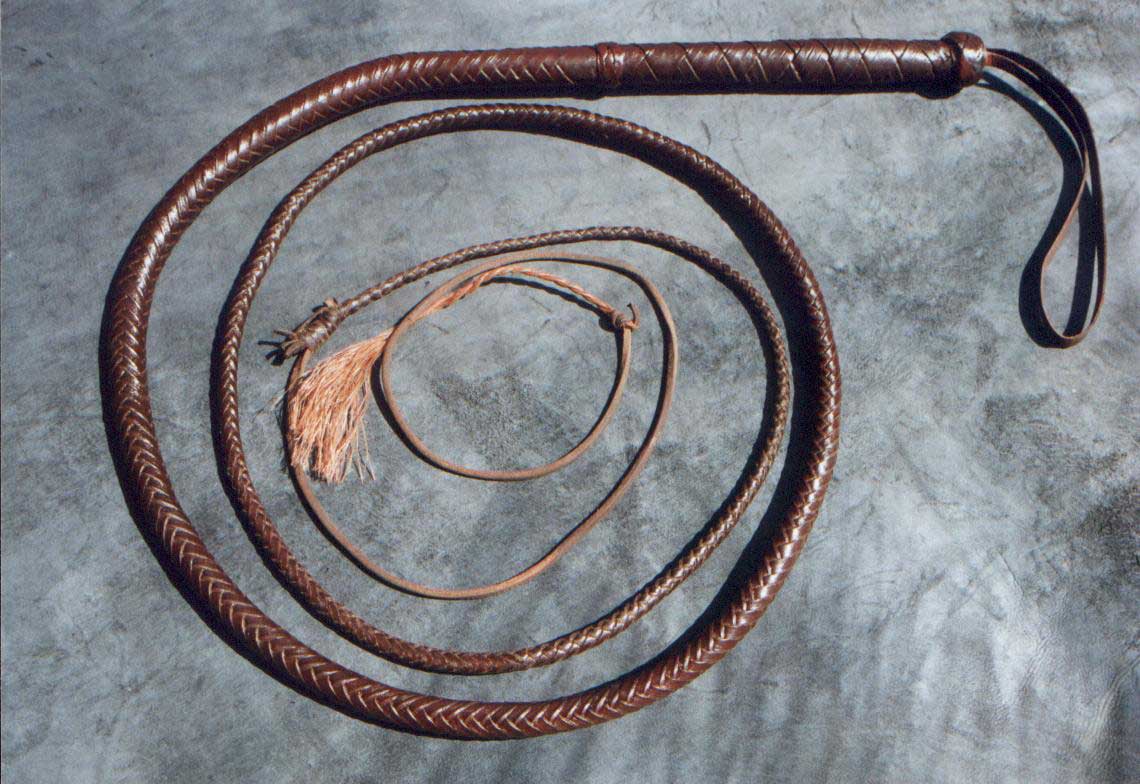 Bulldozer - this name has a terrible history. It comes from the person whipping a slave, or more precisely the term "to give them the dose of the bull." The bull was short for a bull whip.
Bulldozer - this name has a terrible history. It comes from the person whipping a slave, or more precisely the term "to give them the dose of the bull." The bull was short for a bull whip. -
14.
 Seven year itch - it used to refer to a highly-contagious rash which would often last for years.
Seven year itch - it used to refer to a highly-contagious rash which would often last for years. -
15.
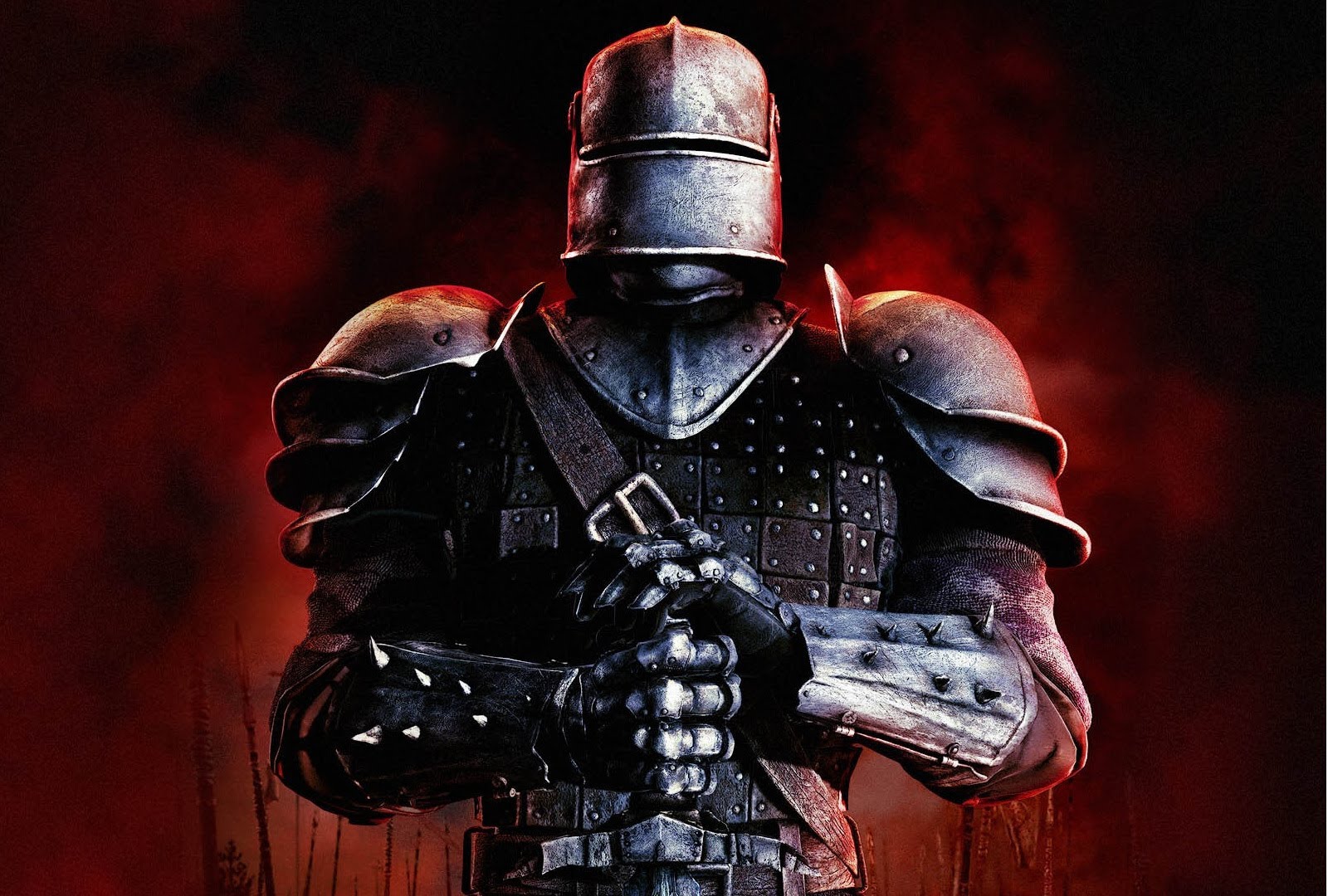 Adult at 21 - this came from the fact that men under the age of 21 would rarely be able to wear full heavy armor. It required a fully-grown, muscular body to bear its weight.
Adult at 21 - this came from the fact that men under the age of 21 would rarely be able to wear full heavy armor. It required a fully-grown, muscular body to bear its weight. -
16.
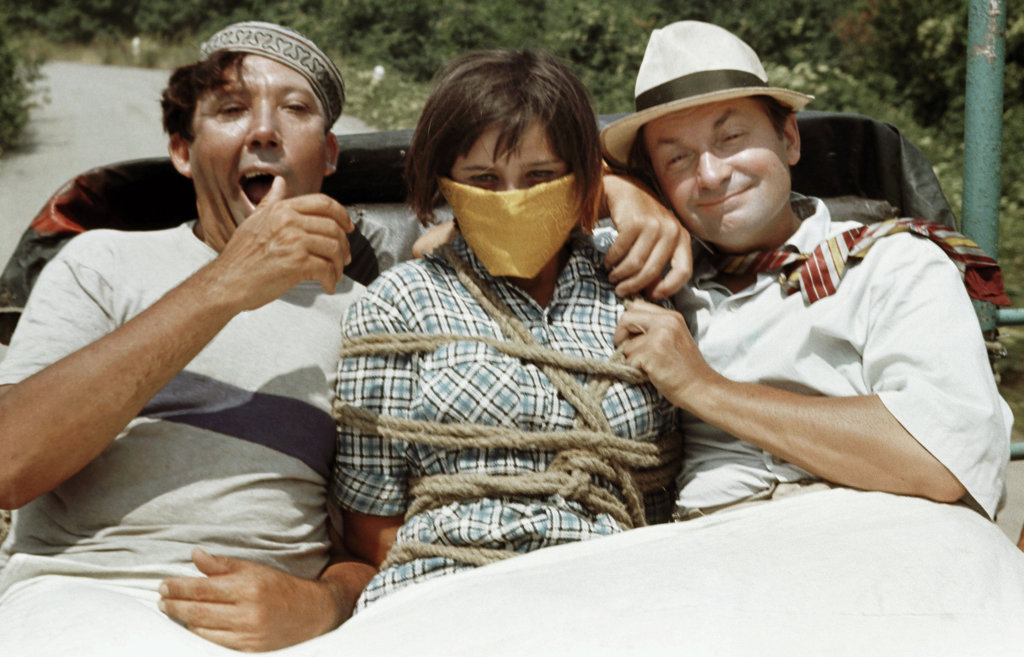 Best man - the best man used to be the guy who helped the groom kidnap the bride (in Dark Ages).
Best man - the best man used to be the guy who helped the groom kidnap the bride (in Dark Ages).
- REPLAY GALLERY
-

- 16 Ordinary Terms With Terrifying Origins
- NEXT GALLERY
-
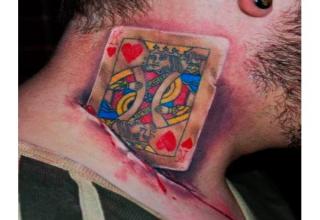
- Kilgore's Nocturnal Exposition
Villain - a villain used to be a servant working in a villa. Perhaps the people working in villas, serving the rich, tended to be exceptionally evil?
16/16
1/16






0 Comments